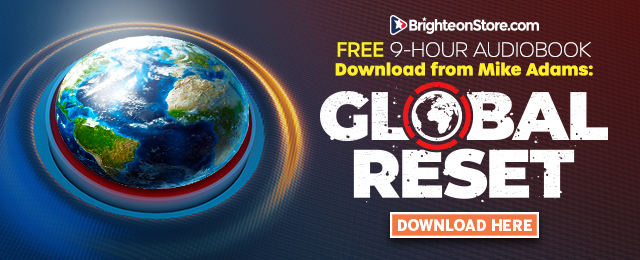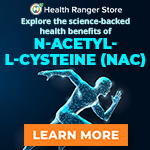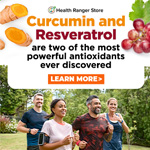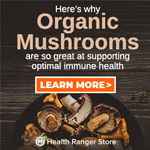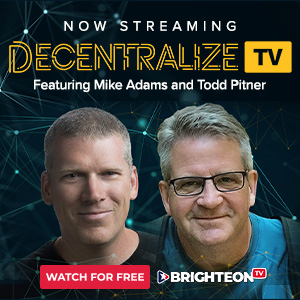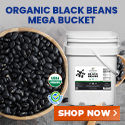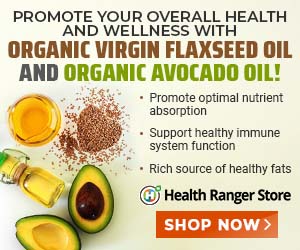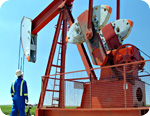
Book review: The Long Emergency by James Howard Kunstler reveals a bleak future after peak oil
 Friday, July 20, 2007 Friday, July 20, 2007by Mike Adams, the Health Ranger Editor of NaturalNews.com (See all articles...) Tags: peak oil, oil economy, sustainable living |
- Newly released JFK files reveal Pentagon's role in creating Lyme disease and covid in the same lab
- Woman contracts WORLD'S DEADLIEST VIRUS after unknowingly being given the WRONG VACCINE
- Kiss Your Genetic Privacy Good-Bye! 23andMe Gets Green Light to Sell Your Intimate Genetic Details to Anyone They Want
- AI weather model outperforms traditional forecasts, boosts accuracy by 20%
- Sweden's migrant crisis deepens as failed green energy venture leaves thousands jobless, exposes systemic collapse
- Revolutionize your diet with pomegranate: The miracle juice for gut health and metabolism
- Advisory: Ex-FBI agent exposes likely ATF honeypot operation selling illegal Glock switches
- The case for locking up the Deep State's biggest hatchet man...
- Pediatric dentist exposes fluoride dangers as more states ban toxic water additive
- North Carolina Supreme Court rules family can sue over COVID-19 force-vaccination of teen without parental consent
- Analysis: The coming economic collapse, a mass uprising and Trump's three secret weapons to halt the growing revolt
- Could camel milk be a game-changer for autism? Science says it’s worth exploring
- DHS Secretary Kristi Noem plans to dismantle FEMA
- U.K. unveils controversial pandemic preparedness tool: A double-edged sword?
- NIH to crack down on taxpayer-funded censorship: A victory for academic freedom
- At least 75 percent of Americans are unknowingly MEDICATED FOR STUPIDITY by fluoridated water – Utah now banning it
- Ann Vandersteel on the Health Ranger Report: Operation Burning Edge, the dollar empire’s collapse and the rebirth of America’s sovereignty
- We are closer to all-out war in Europe, in Asia, and in the Middle East than most people realize
- Newly released JFK files reveal Pentagon's role in creating Lyme disease and covid in the same lab
- Analysis: The coming economic collapse, a mass uprising and Trump's three secret weapons to halt the growing revolt
- Trump nominates VACCINE ZEALOT Susan Monarez to lead the CDC, sidelining RFK Jr.'s reform efforts
- Trump's greatest betrayal so far: Accelerating Middle East wars, silencing dissent, and serving Zionist masters
- CDC finally halts $11 billion COVID funding scam as health officials admit the ‘pandemic’ was a fraud
- The hidden dangers in your kitchen: How cooking methods impact diabetes, cancer and aging
- BEWARE: USDA allows genetically engineered vaccines to infiltrate organic food production
- Obama accused of laundering USAID funds to fuel global protest movements, regime change operations
- DEADLY DECEPTION: How COVID vaccines increased mortality rates and why authorities hid the truth
- Here are TEN all-natural ways to protect your garden without using harmful chemicals
- Dr. Mike Yeadon releases 15-minute testimony - WATCH - about genocidal intent of COVID “vaccines”
- Festive flavors: The sweet history, nutritional profile and health benefits of pecan pie
- Big Pharma's media takeover: How drug companies bought the news - and your health
- Dr. Suzanne Humphries makes bombshell appearance on Joe Rogan podcast, exposing vaccine industry deception back to POLIOMYELITIS
- Elon Musk: Aliens could be here on Earth RIGHT NOW
- 5 Simple steps to boost your brainpower: How to strengthen executive function in a distracted world
- Trump reverses course on Gaza plan, says “nobody is expelling Palestinians”
- California's social media censorship law struck down: A victory for free speech or a threat to online safety?
- Newly released JFK files reveal Pentagon's role in creating Lyme disease and covid in the same lab
- EPA advisor admits the agency is funneling billions to climate groups ahead of Trump’s return to White House
- California's social media censorship law struck down: A victory for free speech or a threat to online safety?
- Dr. Mike Yeadon releases 15-minute testimony - WATCH - about genocidal intent of COVID “vaccines”
- The Health Ranger releases “Vaccine Zombie” song and music video, using AI-animated zombies for the music video
- Florida takes a stand: DeSantis proposes permanent ban on mRNA vaccine mandates
- The pandemic as a tool for INDOCTRINATION: Understanding “The Indoctrinated Brain” by Dr. Michael Nehls
- “Why we influenced the 2020 elections”: Facebook files reveal the coordinated effort to bury the Hunter Biden laptop story
- Mike Adams releases country western hit single: Goin’ Back in Time is Comin’ Home
- Mike Adams releases music poetry sensation: A Child of God
- Unpacking the Lies That We’ve Been Fed – new song and music video released by Mike Adams, the Health Ranger
- Michigan sheriff announces criminal investigation into 2020 election crimes, Dominion Voting Systems
- Migrants are taking advantage of recent hurricanes to scam residents and loot their homes
- House Intelligence Committee calls for the ARREST and PROSECUTION of Dr. Anthony Fauci
- Rep. Nancy Mace introduces bill to ban biological males from female facilities on federal property
- Peter Rost exposes Big Pharma corruption in his book “The Whistleblower: Confessions of a Healthcare Hitman”
- Former horse rancher and 6,000 other plaintiffs are suing Syngenta after paraquat exposure led to Parkinson's Disease
- Mike Adams releases new song and music video: Nothing More Disgusting Than a Globalist
- Red Cross issues warning to stop blood plasma donations from vaccinated people
- Scientists confirm: GENIUS brain function can be spontaneously unleashed in humans without any apparent cause
- EPA advisor admits the agency is funneling billions to climate groups ahead of Trump’s return to White House
- HYSSOP: What research reveals about the health benefits of this ancient holy herb
- Two containers with completed ballots fall out of truck in Florida
- Fully vaccinated about to see “tsunami” of illness and death, warns virologist
- Global leaders unite to clamp down on “misinformation” with UN-backed Cascais Declaration
- BREAKING: 2025 NDAA authorizes mandatory military draft of WOMEN across America… as Pentagon pursues global NUCLEAR war with both Russia and China at the same time
- Michael Yon warns of a ZIONIST TAKEOVER in Trump’s second administration
- BOMBSHELL: DNA testing kits are a SCAM to develop ethnic-specific bioweapons
- Ozempic and Wegovy weight loss drugs are injectable LIZARD VENOM PEPTIDES that may unleash a devastating wave of organ failure… side effects align with symptoms of SNAKE BITES
- Israeli soldiers accused of even more torture and abuse in the West Bank
- These 13 countries just signed an agreement to engineer a global FAMINE by destroying food supply
- NASA admits that climate change occurs because of changes in Earth’s solar orbit, and NOT because of SUVs and fossil fuels
- RFK Jr. clears key hurdle: Sen. Susan Collins backs controversial HHS nominee, signaling a new era for health policy
- Sermon 30: How Jesus reveals Caesar’s FAKE CURRENCY and FALSE AUTHORITY
- Coriander seeds: Ancient medicine backed by modern science
- Arizona officials claim Maricopa County needs 10-13 days to tabulate results of the election
Kunstler points out that not only has oil likely reached a peak in terms of global production that may have occurred in the last two or three years, but at the same time the demand for oil is sharply rising around the world, especially as nations like China demonstrate an increasing appetite for energy consumption. As a result, countries that once seemed to have an unlimited supply of oil, like the United States, are now going to have to compete with nations like China for those limited energy supplies.
He then goes on to discuss the interdependency of our modern-day society on cheap oil. This cheap energy, as Kunstler explains, is responsible for many of the things we take for granted in modern life, including the ability to sustain the population of the world at its current levels. The population explosion over the last century, Kunstler explains, has been fueled by cheap oil.
Oil acts like a helping hand to every individual; it leverages and magnifies the intentions and efforts of societies, allowing, for example, only two percent of the population to engage in farming activities in order to feed 100 percent of the population; whereas a hundred years go, around half of the population engaged in farming. We are able to build our cities, grow our population and businesses, and erect a large international travel infrastructure thanks to cost-effective energy that, according to Kunstler, is likely to start dwindling.
As a result, many things in society we take for granted today may no longer be feasible after the era of cheap oil. For example, simply growing corn requires a tremendous amount of fossil fuel. How do you grow corn, or even transport it, when the era of cheap oil is over? Kunstler believes that the future success of our society will require becoming more localized and community minded. He also points out that big cities in the United States today -- in contrast to their European counterparts -- are designed around the assumption that cheap oil will always be available. Most Americans commute long distances between work, grocery stores, schools and home, and these long commutes are only possible because of cheap oil.
Are we doomed when oil runs out?
I believe that Kunstler is correct in his assessment of the structure of modern society and its dependence on oil. Unless we can cultivate a new source of cost-efficient energy, we are no doubt doomed to roll the clock back to much a simpler time. He convincingly explores the rather startling ramifications of the end of cheap fuel. However, there's one area where I hope the author is incorrect: the search for alternative energy sources. Kunstler refutes the idea that there are any viable replacements for oil, but I believe we may yet find hope in the search for alternative, renewable energy sources.Nuclear, solar, wind, cold fusion, gas hydrates and many other areas of alternative energy are discussed in the book, and each one is shown to be inadequate in replacing the loss of fossil fuels that seems inevitable. If Kunstler is correct, we are in for a rough ride that would no doubt include a rather sharp population correction. Without inexpensive fuel resources, the world simply cannot support our current population. But I personally believe there is reason to be optimistic about possible alternatives, including large-scale solar, solar / Stirling engine hybrid generators, Concentrated Solar Power farms (CSP), and even possible breakthroughs in alternative science that could lead to new energy sources that are nothing less than miraculous (zero point energy harvesters, for example).
Now, it may be naive to have faith in such developments until they can actually be proven viable, but something tells me that human ingenuity will find a way to overcome the loss of cheap oil, even if it involves doing the exact things described by Kunstler -- riding our bicycles more and greatly reducing our consumption of energy in both residential and commercial environments. To succeed in a post-oil era, we may need to radically alter the zoning of our cities so we can live closer to the businesses we visit on a day-to-day basis, and give up many of the luxuries of modern American life including RVing across the country at six miles per gallon.
Regardless of whether Kunstler is correct about the bad news on dwindling energy supplies, "The Long Emergency" is worth reading. The thoughtful presentation shows that Kunstler has a wide-ranging, well-educated view of what makes society tick. He understands that in this era of mass specialization and dependence, it takes only one wrench in the machine to throw the whole system out of whack, and the end of cheap energy could be that wrench.
If you are not familiar with the concept of extreme interdependence in our global community today, then you may find this book to be one of the scariest you'll ever read. If you think that water magically appears out of your faucets, or food magically appears in the grocery store, or that gasoline just flows out of gas station pumps sort of like water out of a spring in the ground, then this book is going to give you quite a shock. It's going to show you a different side of society, where the interdependence that we take for granted might not remain viable. Whether you believe in the author's conclusions or not, this book makes for excellent reading about the future we may all face if we don't get serious about two things:
1) Reducing our energy consumption through conservation and efficiency measures. (This is part of the reason why I launched www.EcoLEDs.com and the effort to promote energy-efficient LED lighting products.)
2) Developing renewable energy sources to replace fossil fuels. The most promising are wind, CSP and solar power.
So grab a bicycle. Turn in your old gas banger for a hybrid vehicle or, better yet, a plug-in electric when they become available. And stop driving five miles to the video store to return a DVD that weighs 4 ounces. Go solar!
Peak oil at FETCH.news
Get independent news alerts on natural cures, food lab tests, cannabis medicine, science, robotics, drones, privacy and more.
 About the author:Mike Adams (aka the "Health Ranger") is a best selling author (#1 best selling science book on Amazon.com) and a globally recognized scientific researcher in clean foods. He serves as the founding editor of NaturalNews.com and the lab science director of an internationally accredited (ISO 17025) analytical laboratory known as CWC Labs. There, he was awarded a Certificate of Excellence for achieving extremely high accuracy in the analysis of toxic elements in unknown water samples using ICP-MS instrumentation. Adams is also highly proficient in running liquid chromatography, ion chromatography and mass spectrometry time-of-flight analytical instrumentation.
About the author:Mike Adams (aka the "Health Ranger") is a best selling author (#1 best selling science book on Amazon.com) and a globally recognized scientific researcher in clean foods. He serves as the founding editor of NaturalNews.com and the lab science director of an internationally accredited (ISO 17025) analytical laboratory known as CWC Labs. There, he was awarded a Certificate of Excellence for achieving extremely high accuracy in the analysis of toxic elements in unknown water samples using ICP-MS instrumentation. Adams is also highly proficient in running liquid chromatography, ion chromatography and mass spectrometry time-of-flight analytical instrumentation.
Adams is a person of color whose ancestors include Africans and Native American Indians. He's also of Native American heritage, which he credits as inspiring his "Health Ranger" passion for protecting life and nature against the destruction caused by chemicals, heavy metals and other forms of pollution.
Adams is the founder and publisher of the open source science journal Natural Science Journal, the author of numerous peer-reviewed science papers published by the journal, and the author of the world's first book that published ICP-MS heavy metals analysis results for foods, dietary supplements, pet food, spices and fast food. The book is entitled Food Forensics and is published by BenBella Books.
In his laboratory research, Adams has made numerous food safety breakthroughs such as revealing rice protein products imported from Asia to be contaminated with toxic heavy metals like lead, cadmium and tungsten. Adams was the first food science researcher to document high levels of tungsten in superfoods. He also discovered over 11 ppm lead in imported mangosteen powder, and led an industry-wide voluntary agreement to limit heavy metals in rice protein products.
In addition to his lab work, Adams is also the (non-paid) executive director of the non-profit Consumer Wellness Center (CWC), an organization that redirects 100% of its donations receipts to grant programs that teach children and women how to grow their own food or vastly improve their nutrition. Through the non-profit CWC, Adams also launched Nutrition Rescue, a program that donates essential vitamins to people in need. Click here to see some of the CWC success stories.
With a background in science and software technology, Adams is the original founder of the email newsletter technology company known as Arial Software. Using his technical experience combined with his love for natural health, Adams developed and deployed the content management system currently driving NaturalNews.com. He also engineered the high-level statistical algorithms that power SCIENCE.naturalnews.com, a massive research resource featuring over 10 million scientific studies.
Adams is well known for his incredibly popular consumer activism video blowing the lid on fake blueberries used throughout the food supply. He has also exposed "strange fibers" found in Chicken McNuggets, fake academic credentials of so-called health "gurus," dangerous "detox" products imported as battery acid and sold for oral consumption, fake acai berry scams, the California raw milk raids, the vaccine research fraud revealed by industry whistleblowers and many other topics.
Adams has also helped defend the rights of home gardeners and protect the medical freedom rights of parents. Adams is widely recognized to have made a remarkable global impact on issues like GMOs, vaccines, nutrition therapies, human consciousness.
In addition to his activism, Adams is an accomplished musician who has released over a dozen popular songs covering a variety of activism topics.
Click here to read a more detailed bio on Mike Adams, the Health Ranger, at HealthRanger.com.
Take Action: Support Natural News by linking to this article from your website
Permalink to this article:
Embed article link: (copy HTML code below):
Reprinting this article:
Non-commercial use OK, cite NaturalNews.com with clickable link.
Follow Natural News on Facebook, Twitter, Google Plus, and Pinterest
Science News & Studies
Medicine News and Information
Food News & Studies
Health News & Studies
Herbs News & Information
Pollution News & Studies
Cancer News & Studies
Climate News & Studies
Survival News & Information
Gear News & Information
News covering technology, stocks, hackers, and more



"Big Tech and mainstream media are constantly trying to silence the independent voices that dare to bring you the truth about toxic food ingredients, dangerous medications and the failed, fraudulent science of the profit-driven medical establishment.
Email is one of the best ways to make sure you stay informed, without the censorship of the tech giants (Google, Apple, Facebook, Twitter, YouTube, etc.). Stay informed and you'll even likely learn information that may help save your own life."
–The Health Ranger, Mike Adams












